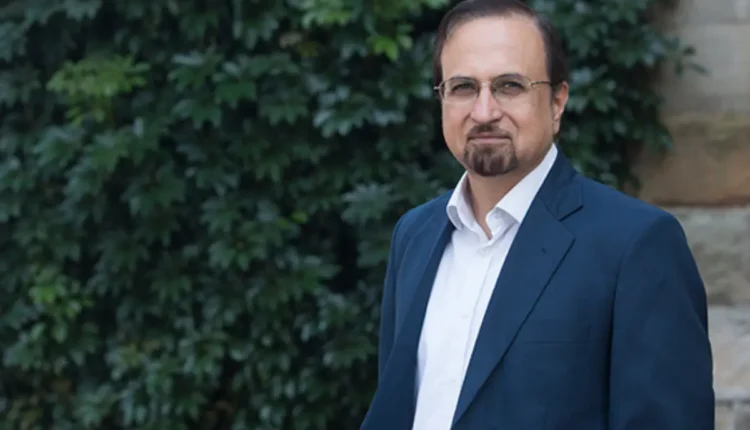When you think of pioneers in modern neuropsychiatry, few names shine as brightly as Perminder Sachdev. Born in 1956 in Ludhiana, India, and now based in Australia, Sachdev has dedicated his career to advancing the understanding of brain health and aging.
His groundbreaking research into cognitive disorders like vascular dementia, psychiatric conditions, and innovative treatments has changed the landscape of neuropsychiatry forever. Sachdev’s unrelenting pursuit of knowledge has not only earned him international recognition but also inspired future generations of scientists and clinicians.
Early Life and Education of Perminder Sachdev: A Journey Rooted in Curiosity
Perminder Sachdev’s life story begins in Ludhiana, Punjab, a city rich in cultural heritage. Growing up in the Himalayan foothills, he was exposed to an environment that nurtured curiosity and learning. From an early age, Perminder Sachdev showed an inclination toward understanding the human mind and behavior. After completing his early education in Solan, Sachdev’s academic journey took him to the prestigious All India Institutes of Medical Sciences (AIIMS), where he earned his MBBS degree in 1978 and an MD in Psychiatry in 1981.
It was during this time that Perminder Sachdev realized his passion for psychiatry over neurology. For him, psychiatry provided the perfect avenue to explore the human condition, both from a biological and philosophical perspective.
His doctoral work in ethnopsychiatry at the University of New South Wales (UNSW), where he earned a Ph.D. in 1991, further solidified his academic and research credentials. His study into Māori cultural concepts like mana, tapu, and whakamā is still considered one of the most insightful works in cultural psychiatry.
Career Milestones: Shaping the Future of Neuropsychiatry
In 1987, Perminder Sachdev took on the role of clinical director of the Neuropsychiatric Institute at the Prince of Wales Hospital in Sydney, Australia. Here, he began researching complex movement disorders, such as Tourette syndrome and neuroleptic malignant syndrome. His expertise in these areas led him to investigate broader cognitive disorders such as schizophrenia and Alzheimer’s disease.
In 1999, Perminder Sachdev was appointed professor of neuropsychiatry at UNSW, further amplifying his influence in the field. His research broadened to include mirror neurons and their relationship to psychiatric disorders. He also explored the use of brain stimulation techniques like transcranial magnetic stimulation (TMS) and deep brain stimulation (DBS), which are now considered revolutionary approaches to treating psychiatric illnesses.
Perhaps one of Sachdev’s most notable contributions is in the area of brain aging and dementia. He founded the UNSW Centre for Healthy Brain Aging in 2012, marking a turning point in the study of cognitive decline. His work at the center, combined with international collaborations, has expanded our understanding of vascular contributions to dementia, setting new standards for research in brain health.
Visionary Leadership in Global Research
One of the most inspiring aspects of Sachdev’s career is his ability to foster international collaboration. He has been instrumental in leading several global research networks, including the International Centenarian Consortium – Dementia (ICC-Dementia) and the Cohort Studies of Memory in an International Consortium (COSMIC). Through these initiatives, he has brought together researchers from around the world to address complex questions about aging, memory, and cognitive resilience.
Sachdev’s leadership in the Sydney Memory and Aging Study, as well as the Older Australian Twins Study, has provided invaluable insights into how genetic and environmental factors influence cognitive decline. His work in these studies has helped to identify new genetic markers for Alzheimer’s disease and vascular cognitive disorders (VCD).
Contributions to Public Health and Policy
Beyond academia, Perminder Sachdev’s influence extends to public health policy and medical education. In 2006, he became the founding chair of the neuropsychiatry section at the Royal Australian and New Zealand College of Psychiatrists. He has also played a pivotal role in shaping the diagnostic criteria for dementia, contributing to both the DSM-5 and the International Society of Vascular Behavioural and Cognitive Disorders.
In 2022, Sachdev’s dedication to dementia research reached new heights when he secured funding from the Australian National Health and Medical Research Council to establish a specialized research center focused on the vascular contributions to dementia. This center will undoubtedly pave the way for new discoveries and treatments for one of the most pressing health challenges of our time.
Also Read:Nitin Daniel Mookhey: Trailblazing Indian-Australian Leader Shaping the Future of NSW

